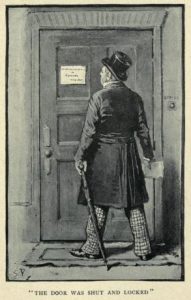I am very lucky. I have a home, a job, a family and friends. I can afford to pay the bills and eat. As I’m single, I am fortunate enough to be able to make my own decisions. If I feel like staying in pyjamas all day, I can. If I want to eat toast for dinner, I can. On the other hand, it would sometimes be nice to have someone to discuss my day with, or cuddle up to while watching a movie. But I am still so much better off than a lot of other women.
I was reminded of this when I flicked the TV over to The Drum last week and caught a discussion about women over 50 and homelessness. You can see it here: http://bit.ly/2rdXQn6 According to The Drum, there has been an increase of up to 44% of women over 50 seeking homeless services in the last five years. 44%!
There is always talk about the greedy baby boomers, who selfishly hold onto jobs and property, thereby denying younger generations. But, although there are definitely wealthy baby boomers around, there are also those who are struggling to survive and a high percentage of those are women. Many of these women stayed at home when they had children, which lead to a loss of income. By staying out of the workforce, they then found it difficult to reenter it when their children started school. Or, by that time they were caring for elderly parents. Or they were victims of domestic violence.
Many older females have practically no superannuation. It wasn’t until the 1980s that employer contributions to superannuation started and 1991 before the Superannuation Guarantee came into place. According to the ASIC website, in 2013-14 Australian women aged 60-64 had on average $138,150 in superannuation savings, which was less than half of the average male account balance.
Research for this post uncovered several articles from up to six years ago which all say the same thing – homelessness for older women is increasing. For six years this has been written about, discussed, dissected, and written about again. But what is happening to fix this problem? Sure, there is government funding and peak bodies who are providing the research and groundwork in this debate. Sure, there are now discussions about gender imbalance and, in some cases, the imbalance is being rectified. But who is going to rectify the imbalances of the past? What can be done to help the women who are homeless, or in fear of becoming homeless, right now?



